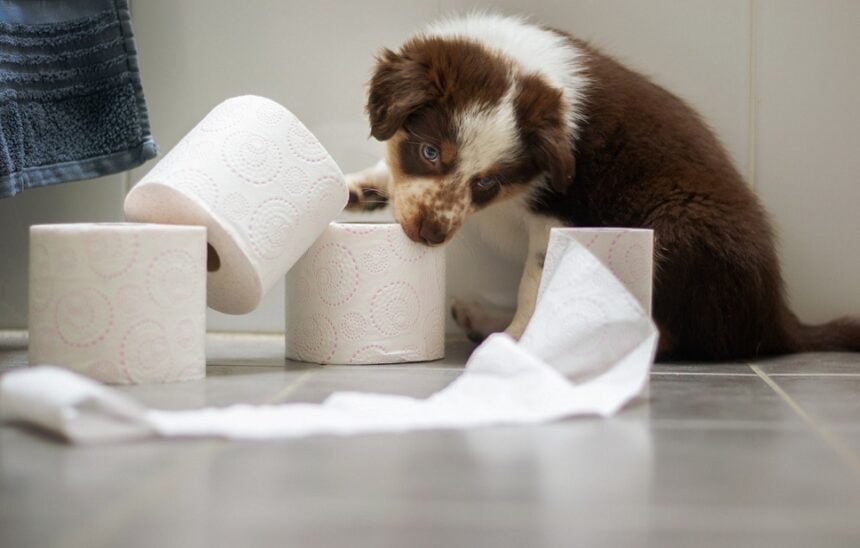Bringing home a new puppy is an exciting and joyous experience, but along with all the cuddles and playtime comes the responsibility of proper bathroom training. Teaching your puppy to develop good pooping habits is crucial for a harmonious living environment and a happy, healthy pet. In this article, we will explore the factors affecting puppy pooping frequency, typical pooping patterns, recognizing signs of a healthy digestive system, and how to establish a consistent puppy pooping schedule.
Factors Affecting Puppy Pooping Frequency
Understanding the factors that influence a puppy’s pooping frequency is essential for effective bathroom training. Several key elements can impact how often a puppy needs to go:
Age and Breed: Younger puppies generally have a more frequent need to eliminate due to their underdeveloped digestive systems. Additionally, different dog breeds might have varying metabolic rates and dietary needs, leading to differences in pooping frequency.
Diet and Nutrition: The type of food your puppy consumes greatly affects their bowel movements. High-quality, balanced diets can result in regular and firm stools, while low-quality or inappropriate food choices might lead to irregularity or gastrointestinal issues.
Water Intake: Proper hydration is vital for a healthy digestive system. Adequate water intake can help maintain regular bowel movements, while insufficient water can lead to constipation.
Typical Pooping Frequency for Puppies
Knowing the usual pooping frequency for puppies at different stages of development can help you anticipate their needs. Here’s a general guideline:
Puppies up to 3 Months: Puppies in this age group may need to poop as often as 4 to 6 times a day. Their digestive systems are still developing, and they are learning to control their bowel movements.
Puppies between 3 to 6 Months: At this stage, puppies might need to poop around 3 to 5 times a day. They are gradually gaining more bowel control and can hold it for slightly longer periods.
Puppies over 6 Months: As puppies mature, their pooping frequency decreases to around 2 to 4 times a day. However, individual variations persist based on factors like breed, diet, and exercise.
Recognizing Signs of a Healthy Digestive System
Monitoring your puppy’s poop can provide valuable insights into their overall health. Here are signs of a healthy digestive system:
Consistency: Healthy puppy stools are usually firm and well-formed, resembling a sausage or a tootsie roll.
Color: The color of the poop should be consistent and range from light to medium brown.
Odor: While poop is not expected to smell pleasant, overly foul or unusually strong odors may indicate an underlying health issue.
Regularity: Establishing a regular pooping schedule is a positive sign of a well-functioning digestive system.
Establishing a Puppy Pooping Schedule
Creating a consistent pooping schedule is a crucial aspect of successful bathroom training. Follow these tips to establish a routine:
Frequent Bathroom Breaks: Take your puppy outside to their designated potty spot frequently, especially after meals, naps, playtime, and waking up in the morning.
Observe and Anticipate: Learn to recognize your puppy’s cues indicating they need to go, such as sniffing around, circling, or whining.
Positive Reinforcement: Praise and reward your puppy when they poop in the designated area. Positive reinforcement will encourage them to repeat the behavior.
Supervise and Limit Freedom: Keep a close eye on your puppy indoors and restrict access to other areas until they are fully trained. Gradually increase their freedom as they learn to control their bowel movements.
Be Patient and Consistent: Remember that accidents are a part of the learning process. Stay patient and consistent with your training methods.
Dealing with Accidents and Housetraining Challenges
Accidents are a natural part of the housetraining process, and how you handle them can significantly impact your puppy’s progress. Here are some tips for dealing with accidents and overcoming housetraining challenges:
Stay Calm: If your puppy has an accident indoors, resist getting angry or scolding them. Punishment can create fear and anxiety, hindering the housetraining process. Instead, clean up the mess calmly and move on.
Clean Thoroughly: Use an enzymatic cleaner to remove any traces of the accident’s scent. This will discourage your puppy from revisiting the same spot.
Supervise Diligently: Until your puppy is fully housetrained, keep a close eye on them indoors to prevent accidents. Use baby gates or a crate when necessary to limit access to certain areas.
Consistency Matters: Stick to the established pooping schedule and bathroom routine. Consistency is key to reinforcing good bathroom habits.
Monitoring Changes in Pooping Habits
Keeping an eye on your puppy’s pooping habits is essential for identifying potential health issues or changes in their well-being. Here’s what to watch for:
Changes in Frequency: Significant increases or decreases in pooping frequency may indicate an underlying problem and warrant a visit to the veterinarian.
Abnormal Stool: Pay attention to any changes in stool consistency, color, or smell. Diarrhea, blood in the stool, or extremely hard stools are signs of potential health issues.
Straining or Discomfort: If your puppy appears to be in pain, shows discomfort while pooping, or is straining excessively, it could be a sign of constipation or other gastrointestinal problems.
Foreign Objects: Monitor your puppy’s environment to ensure they don’t ingest anything they shouldn’t, as this can lead to gastrointestinal blockages.
Traveling and Poop Management
Traveling with a puppy requires some additional planning to manage their bathroom needs effectively. Here are tips for handling poop management during travel:
Prepare a Travel Kit: Pack essentials like poop bags, wipes, and an extra leash for on-the-go clean-ups.
Regular Breaks: During long journeys, schedule frequent stops for bathroom breaks. Give your puppy ample time to relieve themselves at rest areas.
Familiarity in New Environments: When staying in new places, try to maintain a similar routine to what your puppy is used to at home. Familiarity can help reduce accidents and stress.
Final Thoughts on Puppy Bathroom Habits
Successfully training your puppy to have good bathroom habits requires patience, understanding, and consistency. It’s essential to create a positive and supportive environment for your puppy as they learn and grow:
Positive Reinforcement: Reward your puppy for every successful bathroom trip outdoors to encourage them to repeat the behavior.
Be Patient: Housetraining takes time, and setbacks are normal. Stay patient and avoid getting frustrated.
Communicate: Learn to recognize your puppy’s signals for when they need to go and respond promptly.
Celebrate Progress: Acknowledge and celebrate your puppy’s milestones in housetraining. Each successful step is a significant achievement.
Seek Professional Help: If you encounter persistent challenges or notice concerning changes in your puppy’s bathroom habits, don’t hesitate to consult a veterinarian or professional dog trainer for guidance.
By following these tips and guidelines, you can establish a strong foundation for your puppy’s bathroom training, setting them up for a lifetime of good habits and a healthy relationship with you. Remember, the journey to a well-trained and happy puppy is an enjoyable and rewarding experience for both of you.







